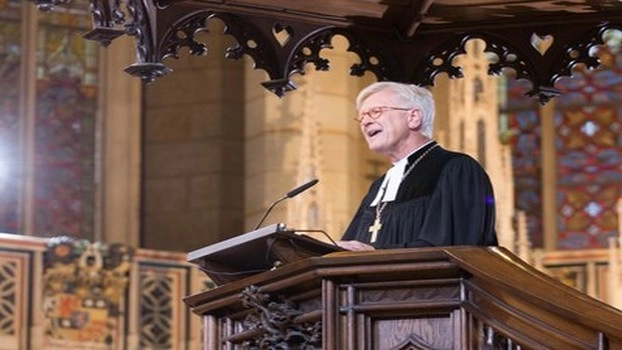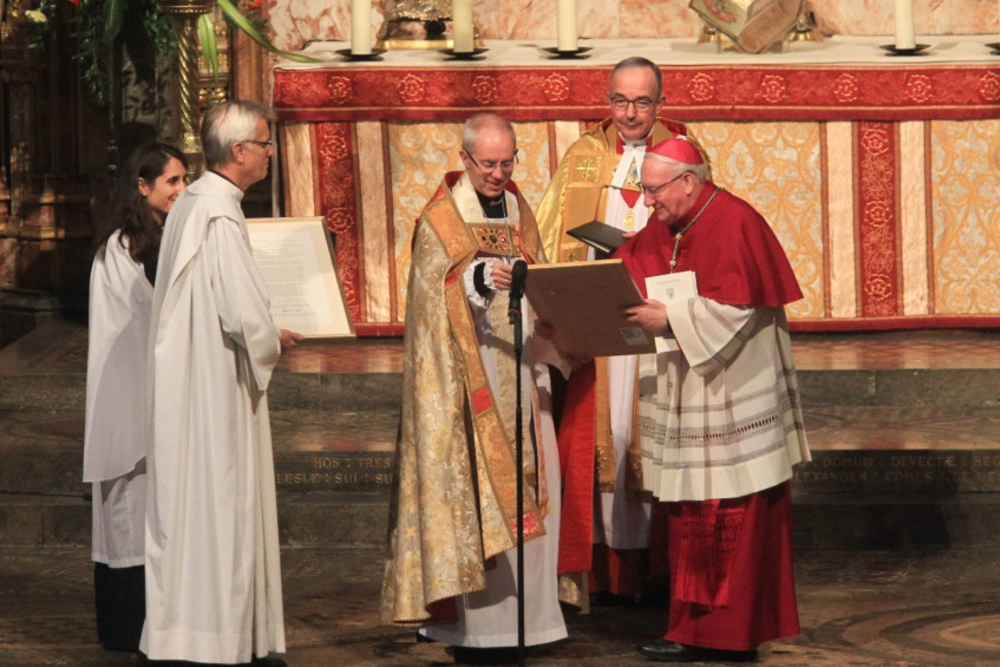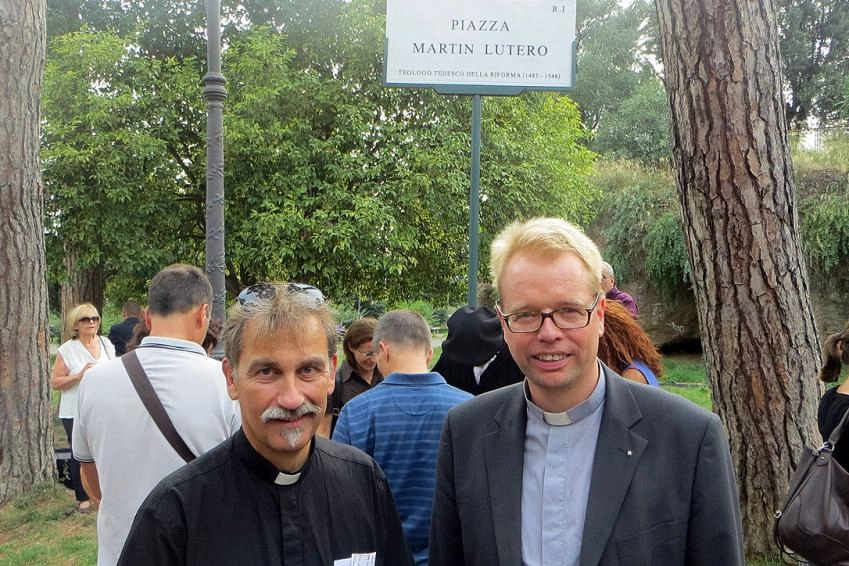- Français
- |
- Booklist
- |
- Week of Prayer
- |
- Links
- Areopagus - a forum for dialogue
- Academic journals
- Acronyms
- Bible tools
- Bibliographies
- Booksellers and publishers
- Churches
- Canadian church headquarters
- Directory of Saskatchewan churches
- Retreat centres
- Saskatchewan church and non-profit agencies
- Ecumenism.net Denominational links
- Anabaptist & Mennonite
- Anglican
- Baptist
- Evangelical
- Independent episcopal
- Lutheran
- Methodist, Wesleyan, and Holiness
- Miscellaneous
- Mormon
- Orthodox (Eastern & Oriental)
- Para-church ministries
- Pentecostal / charismatic
- Presbyterian & Reformed
- Quaker (Society of Friends)
- Roman & Eastern Catholic
- United and uniting
- Documents of Ecumenical Interest
- Ecumenical agencies
- Ecumenical Booklist
- Ecumenical Dialogues
- Glossary
- Human rights
- Inter-religious links
- Justice & peace
- Lectionaries
- Religious news services
- Resource pages
- Search Ecumenism.Net
- |
- Documents
- Ancient & Medieval texts
- Ecumenical Dialogues
- Interreligious
- Anabaptist & Mennonite
- Anglican
- Evangelical
- Lutheran
- Orthodox
- Reformed & Presbyterian
- Roman & Eastern Catholic
- United & Uniting
- Miscellaneous churches
- Canadian Council of Churches (CCC)
- Conference of European Churches (CEC)
- Interchurch Families International Network (IFIN)
- National Council of Churches in Australia (NCCA)
- Lausanne Committee for World Evangelism (LCWE)
- World Council of Churches (WCC)
- Other ecumenical documents
Church traditions
Documents from ecumenical agencies
- |
- Dialogues
- Adventist-Reformed
- African Instituted Churches-Reformed
- Anglican-Lutheran
- Anglican-Orthodox
- Anglican-Reformed
- Anglican-Roman Catholic
- Anglican-United/Uniting
- Baptist-Reformed
- Disciples of Christ-Reformed
- Disciples of Christ-Roman Catholic
- Evangelical-Roman Catholic
- Lutheran-Mennonite
- Lutheran-Mennonite-Roman Catholic
- Lutheran-Reformed
- Lutheran-Roman Catholic
- Mennonite-Reformed
- Mennonite-Roman Catholic
- Methodist-Reformed
- Methodist-Roman Catholic
- Oriental Orthodox-Reformed
- Orthodox-Reformed
- Orthodox-Roman Catholic
- Pentecostal-Reformed
- Prague Consultations
- REC-WARC Consultations
- Roman Catholic-Lutheran-Reformed
- Roman Catholic-Reformed
- Roman Catholic-United Church of Canada
- |
- Quick links
- Canadian Centre for Ecumenism
- Canadian Council of Churches
- Ecumenical Shared Ministries
- Ecumenism in Canada
- Interchurch Families International Network
- International Anglican-Roman Catholic Commission for Unity and Mission
- Kairos: Canadian Ecumenical Justice Initiatives
- North American Academy of Ecumenists
- Prairie Centre for Ecumenism
- Réseau œcuménique justice et paix
- Week of Prayer for Christian Unity
- Women's Interchurch Council of Canada
- World Council of Churches
- |
- Archives
- |
- About us
Archive for tag: Martin Luther
Archive pour tag : Martin Luther
Church and political leaders have marked the 500th anniversary of Martin Luther’s Reformation in Wittenberg, Germany where on 31 October 1517 he published his 95 Theses denouncing church abuses.
“It was an act of liberation when, 500 years ago today, the Augustinian monk Martin Luther posted his 95 Theses in Wittenberg, perhaps even a few metres from here, on the door of this church,” Bishop Heinrich Bedford-Strohm, chairperson of the Council of the Evangelical Church in Germany, said in his sermon at the 31 October service at Wittenberg’s Castle Church.
“A spiritual renewal went out from Wittenberg, to people in Germany, Europe and worldwide. To men and women from all social classes,” said Bedford-Strohm.
The service opened with the singing of Luther’s hymn “A Mighty Fortress Is Our God” whose words are inscribed around the tower of the Castle Church, and included music by 18th century composer Johann Sebastian Bach.
German president Frank-Walter Steinmeier and chancellor Angela Merkel joined church leaders at the service, including Cardinal Reinhard Marx, president of the German Bishops’ Conference, and the general secretary of the World Council of Churches, Rev. Dr Olav Fykse Tveit.
… Read more » … lire la suite »

 Permanent link: ecumenism.net/?p=9799
Permanent link: ecumenism.net/?p=9799
Categories: WCC News • In this article: Germany, Martin Luther, Reformation

 Lien permanente : ecumenism.net/?p=9799
Lien permanente : ecumenism.net/?p=9799
Catégorie : WCC News • Dans cet article : Germany, Martin Luther, Reformation
You might have heard the story about the German friar who nailed 95 provocative statements to a church door a long time ago, triggering something we now call the Reformation.
If you’re looking for a modern interpretation, 500 years ago next Tuesday, Martin Luther posted a particularly incendiary series of tweets. He wanted to provoke debate about corruption in the Roman Catholic Church. He certainly achieved that.
Sadly, Luther couldn’t take advantage of Twitter — and it’s generally accepted that he didn’t actually hammer his arguments to a church door. Instead he used the then cutting-edge technology of printing. But the impact was no less dramatic. What Luther wrote went around Europe incredibly quickly; it was the viral content of its day.
Within two decades Europe was split between Protestants and Catholics in a process called the Reformation. The conflict that generated (which began in England in the early 1530s) continued for hundreds of years. The first century or so was especially bloody and violent.
… Read more » … lire la suite »

 Permanent link: ecumenism.net/?p=9801
Permanent link: ecumenism.net/?p=9801
Categories: Opinion • In this article: Archbishop of Canterbury, Justin Welby, Martin Luther, Reformation

 Lien permanente : ecumenism.net/?p=9801
Lien permanente : ecumenism.net/?p=9801
Catégorie : Opinion • Dans cet article : Archbishop of Canterbury, Justin Welby, Martin Luther, Reformation
Five hundred years ago, Martin Luther kicked off the Protestant Reformation, which contributed to the birth of our modern age. In this one-hour special — filmed on location in Europe — Rick Steves tells the story of a humble monk who lived a dramatic life. Rick visits key sites relating to the Reformation (including Erfurt, Wittenberg, and Rome) and explores the complicated political world of 16th-century Europe — from indulgences to iconoclasts, and from the printing press to the Counter-Reformation. It’s a story of power, rebellion, and faith that you’ll never forget.
… Read more » … lire la suite »

 Permanent link: ecumenism.net/?p=9624
Permanent link: ecumenism.net/?p=9624
Categories: Resources • In this article: Martin Luther, Reformation

 Lien permanente : ecumenism.net/?p=9624
Lien permanente : ecumenism.net/?p=9624
Catégorie : Resources • Dans cet article : Martin Luther, Reformation
Rome’s new Piazza Martin Lutero is not only a sign that Lutherans are welcome in the cosmopolitan Italian city but a reminder of Luther’s call for Christians to proclaim the gospel together by serving the poor.
Rev. Jens-Martin Kruse, pastor of the German-speaking congregation of the Evangelical Lutheran Church in Italy (ELCI) made these remarks following the 16 September inauguration of a central square named after the Reformer Martin Luther. Civic and church dignitaries attended the ceremony to officially recognize the Piazza Martin Lutero, located near the historic Colosseum amphitheater.
“And at the same time this place is also a bit troubled. Here live many refugees, the homeless. For us, there is a reminder that we have an obligation to care for these people,” said Kruse, who serves about 500 Lutherans in Rome.
Piazza Martin Lutero is the result of five years of work by a group of Protestants, including Adventists, Baptists, Methodists, Waldensians and Lutherans, who collaborate in helping the city’s migrants, children and the unemployed.
… Read more » … lire la suite »

 Permanent link: ecumenism.net/?p=8760
Permanent link: ecumenism.net/?p=8760
Categories: Lutheran World Information • In this article: ecumenism, Martin Luther, Rome

 Lien permanente : ecumenism.net/?p=8760
Lien permanente : ecumenism.net/?p=8760
Catégorie : Lutheran World Information • Dans cet article : ecumenism, Martin Luther, Rome
The head of the German Church’s Ecumenical Commission has said that he believes the Pope “rehabilitated” the reformer, Martin Luther, during his visit to the country last month, write Jonathan Luxmoore and Christa Pongratz-Lippitt. Speaking on 23 September to the council of the Evangelische Kirche in Deutschland, in the Augustinian convent in Erfurt where Luther
… Read more » … lire la suite »

 Permanent link: ecumenism.net/?p=6746
Permanent link: ecumenism.net/?p=6746
Categories: Tablet • In this article: Benedict XVI, Catholic, ecumenism, Lutheran, Martin Luther

 Lien permanente : ecumenism.net/?p=6746
Lien permanente : ecumenism.net/?p=6746
Catégorie : Tablet • Dans cet article : Benedict XVI, Catholic, ecumenism, Lutheran, Martin Luther
As the Bishop of Rome, it is deeply moving for me to be meeting you here in the ancient Augustinian convent in Erfurt. As we have just heard, this is where Luther studied theology. This is where he was ordained a priest. Against his father’s wishes, he did not continue the study of Law, but instead he studied theology and set off on the path towards priesthood in the Order of Saint Augustine. And on this path, he was not simply concerned with this or that. What constantly exercised him was the question of God, the deep passion and driving force of his whole life’s journey. “How do I receive the grace of God?”: this question struck him in the heart and lay at the foundation of all his theological searching and inner struggle. For Luther theology was no mere academic pursuit, but the struggle for oneself, which in turn was a struggle for and with God.
… Read more » … lire la suite »

 Permanent link: ecumenism.net/?p=6717
Permanent link: ecumenism.net/?p=6717
Categories: Tablet • In this article: Benedict XVI, Catholic, ecumenism, Lutheran, Martin Luther

 Lien permanente : ecumenism.net/?p=6717
Lien permanente : ecumenism.net/?p=6717
Catégorie : Tablet • Dans cet article : Benedict XVI, Catholic, ecumenism, Lutheran, Martin Luther
Webeditor’s note: The title of this article was changed to more accurately reflect the focus of the papal address. The original title was “Pope Clarifies Luther’s Idea of Justification”. The Vatican Information Service article bears the title “St. Paul: Justification by Christ’s Love”.
[Vatican City • Zenit.org] Benedict XVI says Martin Luther’s doctrine on justification is correct, if faith “is not opposed to charity.”
The Pope said this today during the general audience dedicated to another reflection on St. Paul. This time, the Holy Father considered the Apostle’s teaching on justification.
He noted that Paul’s conversion experience on the road to Damascus “changed his life radically: He began to regard all his merits, achievements of a most honest religious career, as ‘loss’ in face of the sublimity of knowledge of Jesus Christ.”
“It is precisely because of this personal experience of the relationship with Jesus that Paul places at the center of his Gospel an irreducible opposition between two alternative paths to justice: one based on the works of the law, the other founded on the grace of faith in Christ,” the Pontiff explained. “The alternative between justice through the works of the law and justice through faith in Christ thus becomes one of the dominant themes that runs through his letters.”
What is law
But in order to understand this Pauline teaching, Benedict XVI affirmed, “we must clarify what is the ‘law’ from which we have been freed and what are those ‘works of the law’ that do not justify.”
He explained: “Already in the community of Corinth there was the opinion, which will return many times in history, which consisted in thinking that it was a question of the moral law, and that Christian freedom consisted therefore in being free from ethics. […] It is obvious that this interpretation is erroneous: Christian liberty is not libertinism; the freedom of which St. Paul speaks is not freedom from doing good.”
Instead, the Pope said, the law to which Paul refers is the “collection of behaviors extending from an ethical foundation to the ritual and cultural observances that substantially determined the identity of the just man — particularly circumcision, the observance regarding pure food and general ritual purity, the rules regarding observance of the Sabbath, etc.”
These observances served to protect Jewish identity and faith in God; they were “a defense shield that would protect the precious inheritance of the faith,” he remarked.
But, the Holy Father continued, at the moment of Paul’s encounter with Christ, the Apostle “understood that with Christ’s resurrection the situation had changed radically.”
“The wall — so says the Letter to the Ephesians — between Israel and the pagans was no longer necessary,” he said. “It is Christ who protects us against polytheism and all its deviations; it is Christ who unites us with and in the one God; it is Christ who guarantees our true identity in the diversity of cultures; and it is he who makes us just. To be just means simply to be with Christ and in Christ. And this suffices. Other observances are no longer necessary.”
And it is because of this, the Bishop of Rome continued, that Luther’s expression “by faith alone” is true “if faith is not opposed to charity, to love. Faith is to look at Christ, to entrust oneself to Christ, to be united to Christ, to be conformed to Christ, to his life. And the form, the life of Christ, is love; hence, to believe is to be conformed to Christ and to enter into his love.”
“Paul knows,” he added, “that in the double love of God and neighbor the whole law is fulfilled. Thus the whole law is observed in communion with Christ, in faith that creates charity. We are just when we enter into communion with Christ, who is love.”
• Pope Benedict XVI’s address at the General Audience of Wednesday, November 19, 2008.
… Read more » … lire la suite »

 Permanent link: ecumenism.net/?p=524
Permanent link: ecumenism.net/?p=524
Categories: News • In this article: Benedict XVI, Martin Luther

 Lien permanente : ecumenism.net/?p=524
Lien permanente : ecumenism.net/?p=524
Catégorie : News • Dans cet article : Benedict XVI, Martin Luther
Following are excerpts from Pope John Paul II’s letter on Martin Luther, dated Oct. 31, and addressed to Johannes Cardinal Willebrands, Archbishop of Utrecht. The letter, which was written in German, was translated by The Associated Press from a text in Italian released today by the Vatican.
November 10, 1983, is the 500th anniversary of the birth of Doctor Martin Luther of Eisleben. On this occasion, numerous Christians, especially of the Lutheran-Evangelical confession, remember that theologian who contributed in a substantial manner to the radical change of ecclesiastical and secular reality in the West. Our world still experiences his great impact on history.
For the Catholic Church the name of Martin Luther has through the centuries been tied to a painful period in history, in particular to the experience of profound ecclesiastical divisions.
For this reason, the 500th anniversary of the birth of Martin Luther must be for us an occasion to meditate, in Christian truth and charity, on that event engraved in history that was the epoch of the Reformation. It is time that we distance ourselves from historic events and assure that they are often better understood and evoked.
… Read more » … lire la suite »

 Permanent link: ecumenism.net/?p=9650
Permanent link: ecumenism.net/?p=9650
Categories: News • In this article: dialogue, John Paul II, Martin Luther

 Lien permanente : ecumenism.net/?p=9650
Lien permanente : ecumenism.net/?p=9650
Catégorie : News • Dans cet article : dialogue, John Paul II, Martin Luther



